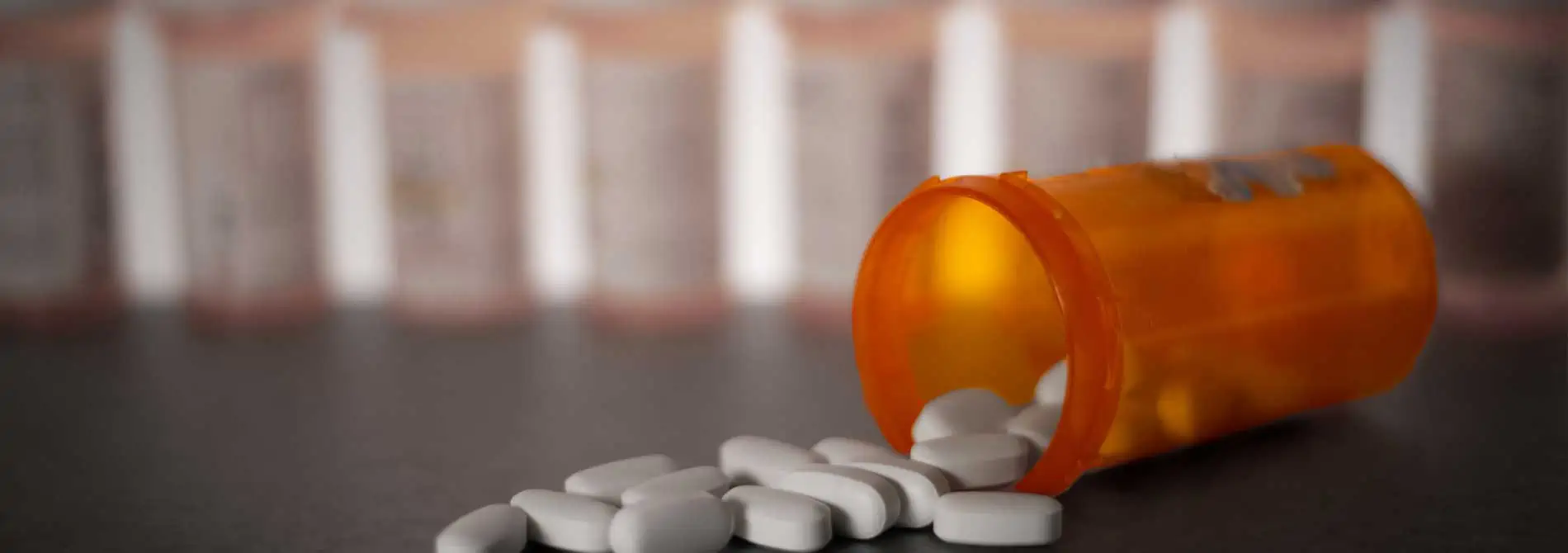Prescription Drug Addiction

According to the National Institute on Drug Abuse (NIDA), prescription drug misuse refers to drugs taken non-medically in any manner or dosage other than the prescribing physician intended. Taking another person’s prescription or taking a prescribed medication planning to get a buzz or to feel high are also examples of misuse.
Contributing to the problem is the perception that prescription drugs are safer and less addictive than illicit drugs. But prescription opioids are highly addictive and lead to unintentional catastrophic effects when mixed with alcohol.
Substance Use Disorders
Signs of Prescription Drug Abuse
Most prescription drug addiction is tied to a doctor or a friend or family member’s medications. Never share your prescription drugs; always dispose of old medicines safely and keep all others secured. The National Institute of Health reports that millions use psychotropic medications in a non-medical way.
- Mood swings
- Sedation
- Slurred speech
- Itchy, flushed skin
- Euphoria
- Lying
- Social isolation
- Theft
- Doctor shopping
- Constipation
- Nausea
- Vomiting
- Constricted pupils
- Cardiovascular complications
- Respiratory depression
- Seizures
- Coma
- Depression
- Anxiety
- Psychosis
Abuse of CNS depressants can lead to:
- Lightheadedness
- Drowsiness
- Confusion
- Sedation
- Impaired memory
- Poor balance
- Appetite changes
- Nausea
- Vomiting
- Constipation
- Weight gain
- Dry mouth
- Reduced libido
- Fatigue
- Respiratory depression
- Jaundice
- Seizures
- Suicide
- Slow heart rate
- Severe low blood pressure
- Fainting
- Akathisia (a movement disorder)
- Increased heart rate
Stimulants can result in the following:
- Weight loss
- Sleep deprivation
- Trembling
- Shaking
- Dehydration
- Elevated temperature
- Agitation
- Hyperactivity
- Cold-like symptoms
- Nosebleeds
- Muscle spasms
- Inability to focus
- Impulsiveness
- Aggression
- Repetitive behaviors
- Disorganized thoughts
- Paranoia
Withdrawal symptoms
All three commonly misused prescription drugs (opioids, stimulants, and depressants) can lead to different withdrawal symptoms when someone attempts to stop using them. Withdrawal from CNS medications can be particularly severe as the half-life, or the rate at which the drug exits the body, of some CNS medications can cause accidents and unconscious behaviors.
Opioid withdrawal include:
- Restlessness
- Irritability
- Craving
- Increased respirations
- Enlarged pupils
- Appetite loss
- Tremors and shaking
- Sweating
- Insomnia
- Muscle and bone pain
- Nausea and vomiting
- Diarrhea
- Involuntary leg movements
- Cold flashes
- Goosebumps
CNS depressants:
- Seizures
- Panic attacks
- Hand tremors
- Dry heaving and vomiting
- Palpitations
- Headache
- Muscle pain and stiffness
- Problems concentrating
- Sleep problems
- Irritability
- Increased anxiety and tension
- A host of perceptual changes
Stimulants:
- Anxiety
- Depression
- Suicidal thoughts
- Decreased energy
- Increased sleeping
- Increased appetite
- Night sweats
- Chills
- Disturbing dreams or nightmares
- Tremors
- Muscle aches
- Nerve pain
Treatment: Medical detox
Successful, holistic treatment focuses on physical, mental, and spiritual needs. Medical detox is needed to handle the withdrawal effects of each misused prescription drug. Our skilled physicians can medically monitor your detox and conduct it simultaneously with therapy.
Post-surgical relapse
For those recovering from prescription drug abuse, post-surgical relapse is a danger. Every person on your medical team must understand your addiction and carefully taper all narcotic medications for acute surgical pain to help reduce the risk of relapse.
The Headwaters Experience
Headwaters offers comprehensive and private medical and clinical care for executive-level addiction, including cutting-edge modalities to retrain the brain. We also focus on providing extensive support for co-occurring disorders.
Our experienced team of physicians, psychiatrists, psychologists, master’s level clinicians, and licensed therapists are ready to help. We understand the unique challenges faced by high net-worth individuals and do everything possible to ensure your privacy and comfort.
Therapies administered under the care of our licensed professionals include:
- Motivational interviewing
- Neurofeedback
- Biofeedback
- Neurotherapy
- Cognitive-behavioral therapy
- Wellness activities
- Group therapy
- 12-Step programming
- Support groups
- Nutritional counseling

Contact Headwaters
Our Headwaters team provides practical, cutting-edge care that enacts real, lasting change. Lifelong recovery is possible for everyone with evidence-based therapies that restore mental, physical, and spiritual health.
West Palm Beach, FL 33407
Follow Us On:

